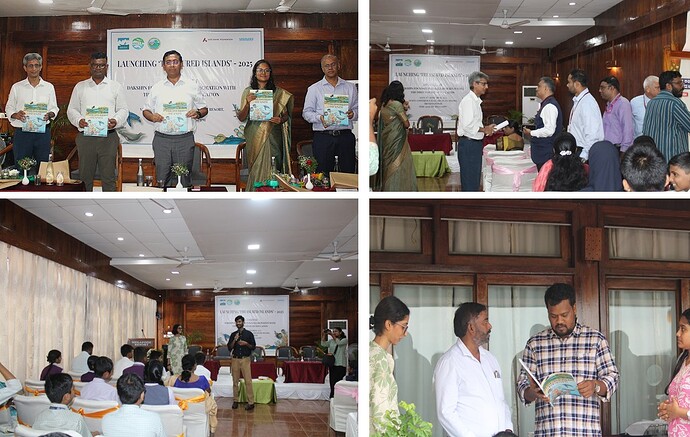From Shorelines to Solutions: What SeaChange Made Possible This Year
This past year, SeaChange stayed true to its core by supporting coastal communities in shaping their own futures. From protecting marine ecosystems to improving health and strengthening livelihoods, local champions especially women and youth led the way.
At each site, we focused on what communities needed most such as better access to healthcare, stronger governance, inclusive participation, and resilient livelihoods. Our biggest leap was completing system-level mapping across regions, which helped us see the full picture on how health, economy, and environment are deeply connected. From there, we worked with communities and varied stakeholders identified through systems mapping to plan interventions that reflect these realities.
With rising interest in tapping the Indian Ocean for economic gain, we’re also asking the tough questions,
“How do we grow without harming the very ecosystems we depend on? How can carbon solutions be both sustainable and fair?”
Snapshots from the field
Odisha
In Ganjam, Puri, and Jagatsinghpur, dried fish isn’t just food. It’s a thread that ties together livelihoods, nutrition, and dignity. By mapping the entire value chain of the dried fish trade, we gained deeper insights into pricing, key market actors, and value addition points. These findings are informing efforts to improve income for women producers and reduce dependence on middlemen.
While we continued our engagement with the community and forest department on turtle monitoring, our focus this year was also on building community resilience through health and wellbeing initiatives. Over 420 children and adolescents participated in sessions on mental health, menstrual hygiene, nutrition, and gender awareness, often having these conversations for the first time. Our teams are seeing growing awareness in the community about government health schemes, including health cards thanks to the Non-Communicable Disease (NCD) screenings that community catalysts facilitated.
By deepening ties with local health systems and building community-led initiatives, we’re seeing a quiet but steady shift towards more responsive, locally rooted care.
Andamans
Eight young women in Wandoor became our first Youth Ambassadors. They knocked on 784 doors, led waste segregation campaigns, and got over 240 women to switch to menstrual cups and alternative sustainable hygiene products. These women are shifting norms and sparking conversations about health, environment, and leadership.
We’re excited to share that our long-standing sea turtle conservation efforts in the Andamans were recognised with the Netaji Subhas Chandra Bose Excellence Award, 2025. This award is a tribute to the community members, field teams, and partners who’ve worked tirelessly to protect these ancient mariners and the ecosystems they call home.
Tamil Nadu
Ocean Stewards, a group of trained youth from the community, are stepping up as active participants in marine resource management. Through field visits focused on reduction fisheries, they observed how bycatch flows from boats to traders and improved their skills in species identification. These skills are vital for effective local monitoring and long-term stewardship of marine ecosystems.
We’re also digging into deeper, harder questions like what happens when local food sources quietly disappear. More and more often, bycatch from midwater trawlers once considered waste is now being scooped up for fishmeal and fish oil production. That’s 69% of nutrient-rich, low-value fish no longer reaching local plates. It’s a quiet shift with big consequences, threatening food security and marine health in ways that often go unnoticed.
Partnerships That Matter
Across all regions, we’ve built strong ties with forest officers, health departments, panchayats, civil society orgs, and technical experts. Whether it was organising health camps in Odisha, SWM trainings in the Andamans, or fisheries consultations in Palk Bay, our partners have been central to co-creating change.
With these strengthened partnerships and SeaChange efforts on ground, in the last year Dakshin has been able to reach over 22,000 community members across 110 villages in 6 districts spanning 3 states, working alongside them to move towards our goal of coastal resilience and well-being.
What’s Next?
Last year, we initiated Ocean Solutions to explore integrated approaches that balance blue growth with climate resilience. With increasing focus on Indian Ocean resources, our goal is to co-develop tools that map and monitor blue carbon habitats, identify local challenges, and support sustainable, equitable ocean-based enterprises.
And that’s just the beginning for us at Dakshin. Looking ahead, we will continue deepening our site-specific interventions while scaling the model to sites in Maharashtra and the Lakshadweep islands, strengthening our systems-based, integrated approach across critical coastal landscapes.
We’re excited to bring SeaChange to these new landscapes, explore new partnerships and keep building a model of coastal stewardship that’s deeply local, yet globally relevant.














